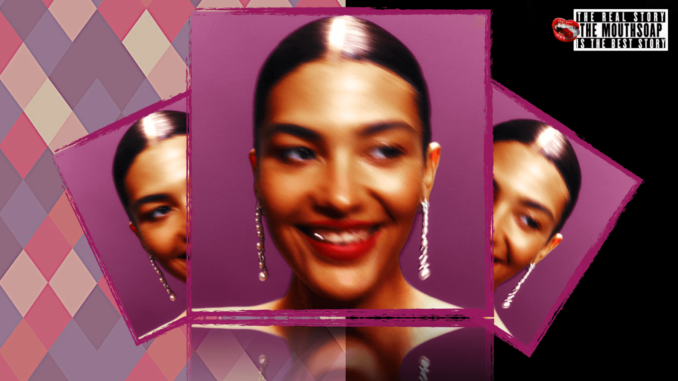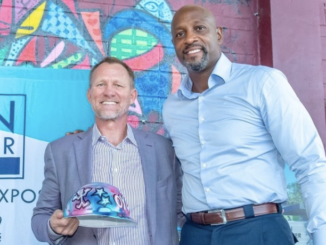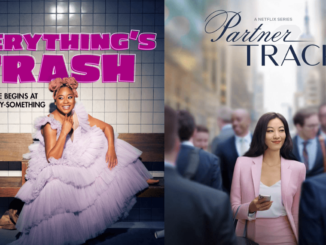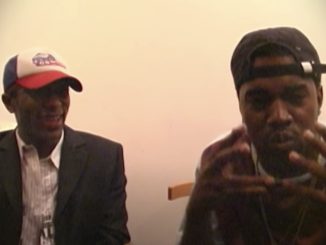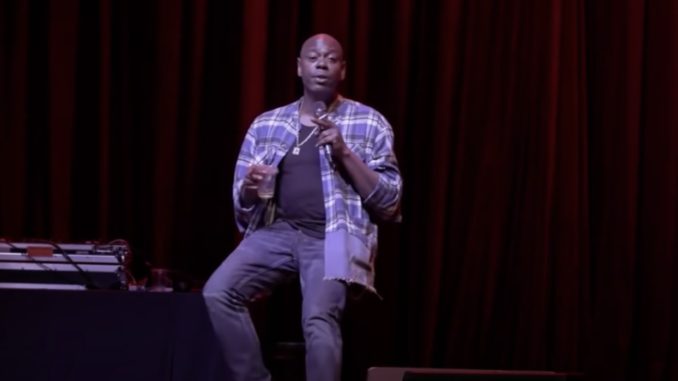
The girls are fighting…and we have the dreadful “privilege” of witnessing it all — whether we want to or not. Even if you didn’t watch Dave Chappelle’s latest standup special The Closer, you probably scrolled down your Twitter and TikTok feeds, and through your Instagram stories or viewed the passionate conversations on FaceBook to learn “people are outraged” that Chappelle’s main discourse of jokes were about his experiences with the Transgender community. Let’s get the basics out of the way.
Was the Netflix special entertaining? Well, if you make it through the first 10 minutes of Chappelle poking fun at a serious pandemic that actually traumatized a lot of people who may have experienced the lost of loved ones, housing displacement, food insecurity, mental health issues, unemployment, and so forth…then, yes. Yes, it was entertaining.
Would I recommend it as a must-watch? Chappelle is one of those comedians that speaks with a two-edge tongue. One edge masterfully delivers suppressed chuckles that fumbles out after a politically incorrect joke, while the other distributes a food for thought (shout out Pabulum Entertainment) message that is supposed to incite a confusing rush of cell entanglements in the brain, testing your very intellect.
In this day and age, everyone wants to be included, so mob mentality, groupthink, and sheeple bonding are all accepted societal dynamics that make it easy to accept the status quo and to judge those who choose to be outliers. But, Dave Chappelle is not being controversial and loud about his opinions for a narcissistic agenda, we hope. It appears the comedian really does have some concerns and grievances. One of them is being bullied because he is a straight, Black male in America.
To clearly understand those issues, “playing telephone” by reading a host of biased headlines may not be the best way to gather information. I would say, watch it yourself and YOU be the judge. The worst is when people have so much to say, but never even experienced (in this case, watched) what they’re talking about in the first place — one of the points that Chappelle makes in his standup special.
At the end of the day… The Closer is Chappelle’s state of the “non-union” address — and plea — to the LGBTQA+ community. As he attempts to explain with a very heartbreaking story about the San Francisco comedian Daphne Dorman, a Transgender woman he befriended and gave the opportunity to open for one of his standup shows, Chappelle reveals that Dorman not only liked his jokes, but also adamantly defended him online when he was accused of being transphobic.
In his defense, Dorman posted the statement, “Punching down requires you to consider yourself superior to another group. He doesn’t consider himself better than me in any way. He isn’t punching up or punching down. He’s punching lines. That’s his job and he’s a master of his craft.”
According to Chappelle, Dorman died of an apparent suicide on Oct. 11, 2019. Whatever was the cause of Dorman’s sudden departure, the comedian emphasized that the online bullying and negative attention directed towards Dorman did not help. Chappelle’s issues with the Transgender community stem not only from Dorman’s death, but also the fallout from his 2019 Netflix special Sticks & Stones. As Chappelle demonstrated in The Closer, from a confrontation in Austin, Texas to a run-in at a local bar, it’s difficult for him to go anywhere without being called out. By the end of the standup, Chappelle vows not to tell another joke regarding the community until there’s some type of resolve and understanding.
How Chappelle ended up in an all-out war with the LGBTQA+ community and how all of us “others” are here to witness this massive misunderstanding is a poignant moment, but a mysterious one, too. Chappelle definitely represents the middle-aged, straight Black male in this fight, and that comes with its own set of complexities, including the ever-present homophobia and hypermasculinity culture that exists among the demographic.
From those that aren’t in the middle of this weird back-and-forth between the two “tribes” as Chappelle would label it, the resolution is simple. How about Chappelle and those who think like him stop talking about something that they don’t know about?
Why is Chappelle so enthralled by the Transgender community, anyway? If he’s curious, conduct a roundtable with credible frontmen of their movement — that way, everyone can be educated along with him. As far as the Transgender community is concerned, how about they practice what they preach and stop bulldozing people for thinking differently from them? Match the energy of the deliverer of the message. Chappelle may have been offensive, but he wasn’t aggressive or violent and actively seeking to end careers and livelihoods, at least not intentionally. Can we say the same about those who oppose him?
